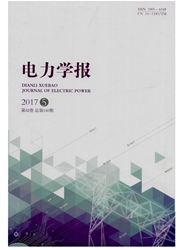

 中文摘要:
中文摘要:
The cyclic extrusion compression(CEC) was applied to severely deform the as-extruded GW102K(Mg–10.0Gd–2.0Y–0.5Zr, wt%) alloy at 350, 400, and 450 °C, respectively. The microstructure, texture, and grain boundary character distribution of the CECed alloy were investigated in the present work. The mechanical properties were measured by uniaxial tension at room temperature. The crack initiation on the longitudinal section near the tensile fracture-surface was investigated by high-resolution scanning electron microscopy(SEM). The result shows that the microstructure was dramatically refined by dynamic recrystallization(DRX). The initial fiber texture was disintegrated and obviously weakened. The 8-passes/350 °C CECed alloy exhibited yield strength of 318 MPa with an elongation-to-fracture of 16.8%, increased by 41.3% and 162.5%, respectively. Moreover, the elongation-to-fracture of the 8-passes/450 °C CECed alloy significantly increased more than 3 times than that of the received alloy. The cracks were mainly initiated at twin boundaries and second phase/matrix interfaces during tensile deformation. The microstructure refinement was considered to result in the dramatically enhanced of the strength and ductility. In addition, the texture randomization during CEC is beneficial for enhancing ductility. The standard positive Hall–Petch relationships have been obtained for the CECed GW102 K alloy.
 英文摘要:
英文摘要:
The cyclic extrusion compression (CEC) was applied to severely deform the as-extruded GW102K (Mg- 10.0Gd-2.0Y-0.5Zr, wt%) alloy at 350, 400, and 450 ℃, respectively. The microstructure, texture, and grain boundary character distribution of the CECed alloy were investigated in the present work. The mechan- ical properties were measured by uniaxial tension at room temperature. The crack initiation on the longitudinal section near the tensile fracture-surface was investigated by high-resolution scanning elec- tron microscopy (SEM). The result shows that the microstructure was dramatically refined by dynamic recrystallization (DRX). The initial fiber texture was disintegrated and obviously weakened. The 8-passes/ 350 ℃ CECed alloy exhibited yield strength of 318 MPa with an elongation-to-fracture of 16.8%, increased by 41.3% and 162.5%, respectively. Moreover, the elongation-to-fracture of the 8-passes/450 ℃ CECed alloy significantly increased more than 3 times than that of the received alloy. The cracks were mainly initi- ated at twin boundaries and second phase/matrix interfaces during tensile deformation. The microstructure refinement was considered to result in the dramatically enhanced of the strength and ductility. In ad- dition, the texture randomization during CEC is beneficial for enhancing ductility. The standard positive Hall-Petch relationships have been obtained for the CECed GW102K alloy.
 同期刊论文项目
同期刊论文项目
 同项目期刊论文
同项目期刊论文
 Strength analysis of the carbon-fiber reinforced polymer impeller based on fluid solid coupling meth
Strength analysis of the carbon-fiber reinforced polymer impeller based on fluid solid coupling meth Influence of Grain Size and Texture on the Yield Strength of Mg Alloy Processed by Severe Plastic De
Influence of Grain Size and Texture on the Yield Strength of Mg Alloy Processed by Severe Plastic De Influence of grain refinement and texture evolution on the yield strength of mg alloy processed by c
Influence of grain refinement and texture evolution on the yield strength of mg alloy processed by c 期刊信息
期刊信息
